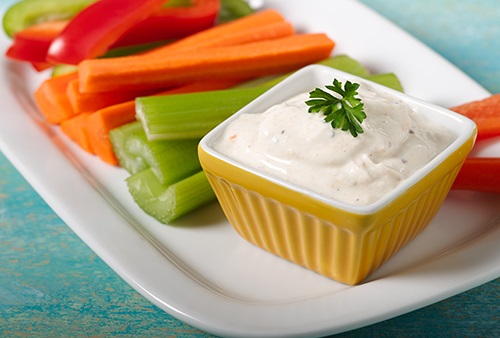Fluid and Thirst Control Tips for Summer
We’ve all been there…it’s a hot summer day and the only thing you want to do is drink a few cool glasses of water. But wait! Before you drink too much, remember that excess fluid may have negative effects on your body. For those on dialysis, it is recommended to limit fluid intake to 32 ounces a day. However, individual needs differ so this amount can vary from person to person. Fluid intake refers to all foods and drinks that are liquid at room temperature.
For people with chronic kidney disease (CKD) and not on dialysis, the recommendation may range from liberal fluid intake to limited fluid intake. Remaining kidney function, medications and presence of other health conditions help your doctor determine an individual fluid prescription. If you have questions about your recommended fluid intake, consult with a doctor or dietitian. Check out the list below for foods and drinks that are considered fluids.
- Water
- Soda
- Tea or Coffee
- Juice or Lemonade
- Ice cream, ice pops, sherbet, sorbet, gelatin
- Ice cubes
- Soup
How are Sodium Control and Fluid Intake Related?
People with CKD and those on dialysis likely already know that it is also important to stick to a low-sodium diet that limits salty foods and drinks, if prescribed. Extra salt in your body might make you thirstier, which may make you want to consume more fluid! For healthy individuals, it is recommended that you limit sodium to <2,300 mg a day3. Your individual needs may be different if you have CKD or are on dialysis. Check with a doctor or dietitian for further guidelines.
As a general rule, it’s best to watch out for high-sodium foods that might make you thirsty, including processed snacks, pickled vegetables, frozen meals, soup, sauces, fast food meals and convenience store food items.
Easy Low-Sodium Recipes

- Easy Salt-Free Seasoning Dip
- Frosted Grapes
- Fruit Salad Slaw
- Low Sodium Tuna Salad
- Cool Cucumber Soup
- Alfredo Sauce
- Soy-Less Sodium Sauce
- White BBQ Sauce
Why Limit Fluid Intake?
For someone on dialysis, the body cannot remove fluid like it normally would, which may cause excess fluid to build up. Excess fluid can damage the heart and surrounding organs.
Think about your heart like a water balloon. At first, the empty water balloon is a normal sized and functioning well. Over time, as more and more fluid is added, the water balloon begins to expand and stretch out, eventually reaching its limit. When there is excess fluid in and around the heart, it also stretches out abnormally and might even start to beat faster. The added strain on the heart can also cause blood pressure to rise. Excess fluid can also put pressure on organs and cause them to lose function.
If you have excess fluid on your body, you might feel swollen or short of breath. It is vital to control fluid intake as recommended by a doctor or dietitian so you can keep your heart and other organs as healthy as possible!
Fluid Control Tips
Check out these tips for controlling fluid intake:
- Try taking medications with applesauce or with food instead of water or other beverages
- Monitor the sodium in meals, including seasonings
- Avoid or limit spicy foods
- Spread out fluid intake throughout the day
- Snack on frozen grapes or cold fruits/vegetables to help quench thirst
- Make ice cubes out of your favorite drink
- Take blood pressure and water pills as prescribed
- Use smaller cups or measuring cups when drinking to better monitor fluid intake
- Keep a food and fluid journal to track your weight and fluid intake
- Use mouthwash, sugar-free mints, gum, sour candy or lemon/lime wedges to quench your thirst
- Talk to a dietitian or doctor if you have questions or need more help—your care team is here for you
References
- https://www.davita.com/diet-nutrition/articles/basics/fluid-control-for-kidney-disease-patients-on-dialysis
- https://www.kidney.org/atoz/content/fluid-overload-dialysis-patient
- https://www.niddk.nih.gov/health-information/kidney-disease/chronic-kidney-disease-ckd/eating-nutrition/nutrition-advanced-chronic-kidney-disease-adults
Visit DaVita.com and explore these diet and nutrition resources:
- DaVita Kidney-Friendly recipes
- Today’s Kidney Diet cookbooks
- Diet and Nutrition articles
- Kidney Smart® Virtual Classes
This article is for informational purposes only and is not a substitute for medical advice or treatment. Consult your physician and dietitian regarding your specific diagnosis, treatment, diet and health questions.

Recent Comments